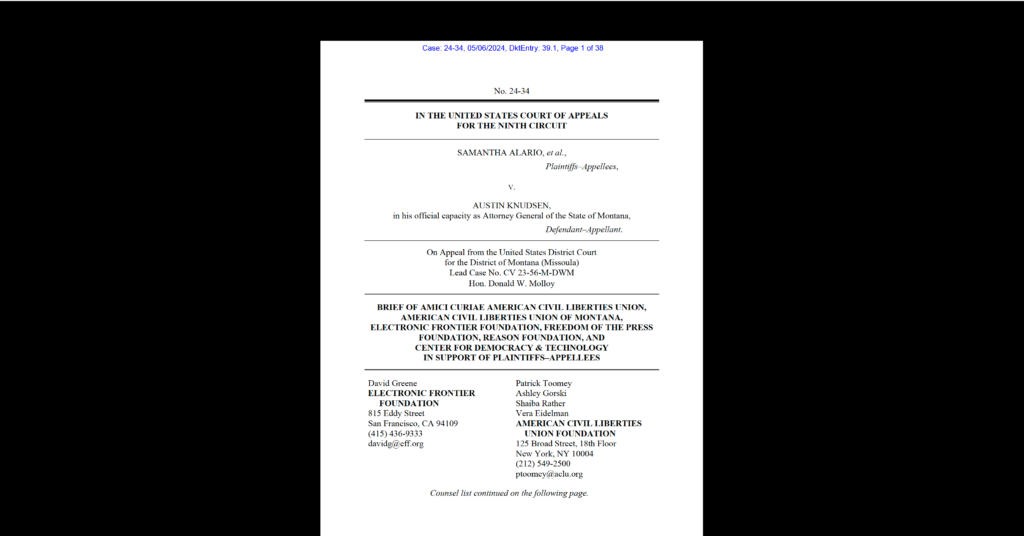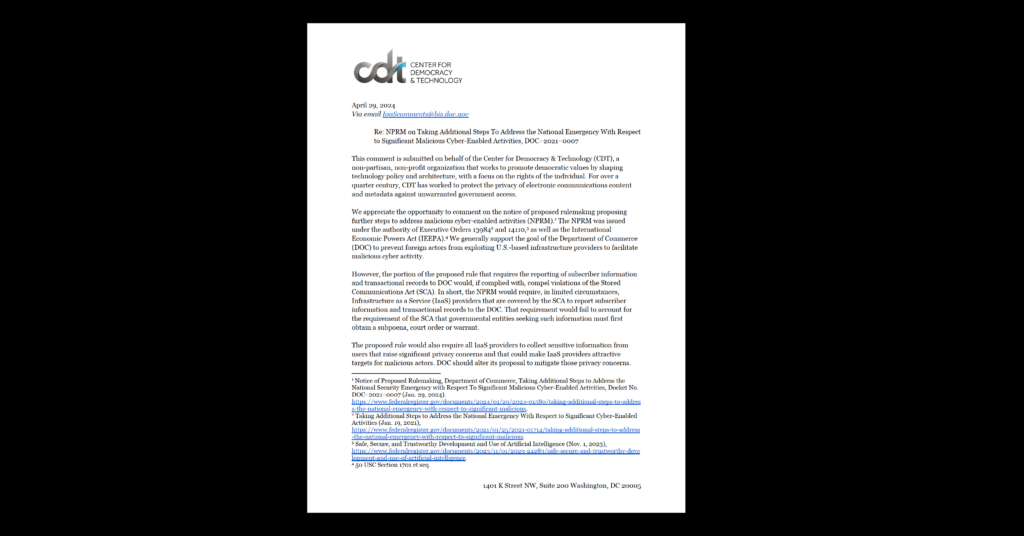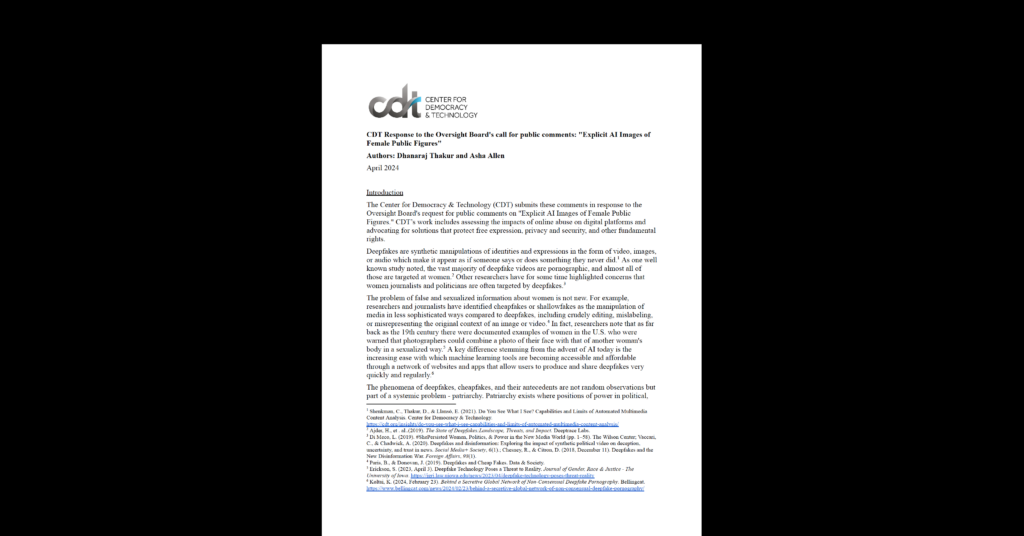European Policy, Free Expression, Government Surveillance, Privacy & Data
EU Tech Policy Brief: June 2022 Recap
This is the June 2022 recap issue of the Centre for Democracy & Technology Europe‘s monthly Tech Policy Brief. It highlights some of the most pressing technology and internet policy issues under debate in Europe, the U.S., and internationally, and gives CDT’s perspective on them. Our aim is to help shape policies that advance our rights in a digital world. Please do not hesitate to contact our team in Brussels: Iverna McGowan, Asha Allen, and Ophélie Stockhem.
CDT Europe Joins RightsCon 2022
On 6 June, CDT hosted a RightsCon panel about global perspectives on the threats and harms of gendered disinformation targeting women in public life. Moderator Asha Allen, CDT Europe Advocacy Director for Europe, Online Expression & Civic Space, and our panellists Lucina Di Meco, Chenai Chair, and Hera Hussein, discussed their important work across the sector and what policymakers and industry must take into account when developing solutions.
On 10 June, Allen and Emma Llansó, Director of CDT’s Free Expression Project , hosted a community lab on the status of the Digital Services Act (DSA). The discussion focused on opportunities for shaping the next phase of implementation of the DSA, and the safeguard loopholes that remain. These include the empowerment of law enforcement agencies to issue orders against illegal content, as well as take on the role of Trusted Flaggers, raising concerns around the Rule of Law. During breakout sessions, participants also discussed the risks posed by the DSA from various countries’ perspectives, and opportunities to integrate the DSA model into national legal frameworks.
CDT Europe Addresses FOSI European Forum on Online Safety
On 23 June, Asha Allen spoke at the Family Online Safety Institute (FOSI) in-person European Forum on “Online Safety: A Transatlantic View”, which aimed this year to discuss the state of online safety in the U.S., UK and Europe.
Speaking at a panel on age assurance, Allen discussed the due diligence obligations of the Digital Services Act, which name the protection of minors as a priority systemic risk that very large online platforms have to assess and mitigate against. She reiterated the need for a nuanced, multistakeholder approach to child protection in the digital world, given the complexity in the preservation of all rights and freedoms online.
CDT Europe Raises Strong Concerns about Proposed CSAM Regulation
CDT Europe issued a briefing on the European Commission’s Proposal on child sexual abuse (CSA) material, in which we provide an overview of some of the most pressing human rights issues that the proposal presents.
Furthermore, CDT Europe joined more than 70 civil society partners in signing an open letter to raise strong concerns about the proposal, which would jeopardise children’s safety and our fundamental rights.
In the letter, we argue that because the proposal includes wide scanning of particular classes of communications, and mandates that courts and administrative bodies issue content detection orders on suspected CSA material, it poses severe risks to end-to-end encryption, the right to privacy, and the safety of online users, including children.
For all these reasons, signatories of the letter call on EU lawmakers to address abuse through human rights-compliant legislation that does not unduly interfere with the fundamental rights of all users of electronic communications services, such as their respect for private life, their right to free expression and association, and data protection.
Digital Services Act Snapshot
After weeks of intense negotiation, and a provisional agreement reached at the end of May, the European Parliament Internal Market Committee (IMCO) voted in favour of the consolidated text of the Digital Services Act (DSA) on 16 June, paving the way for the full European Parliament to adopt the legislation’s final text at the Plenary in July.
As outlined in CDT Europe’s previous analysis, the DSA establishes some welcome obligations for greater transparency and accountability of online platforms and search engines. However, the proposal still contains significant shortcomings, and removes crucial safeguards for privacy and end-to-end encryption that were previously introduced by the European Parliament.
The adoption of the final text at the plenary vote in July foreshadows questions around the enforcement and implementation of the proposal, such as the adequacy of resources of the European Commission to implement the proposal, and challenges around the designation of and cooperation between the Digital Services Coordinators.
Don’t forget to check out CDT Europe’s publications for this month!
- Briefing document on key issues in European Commission’s CSAM Proposal
- Press release on the IMCO vote on the consolidated text of the Digital Services Act


